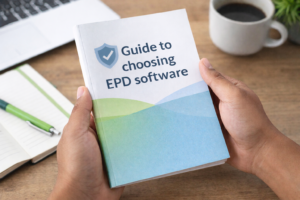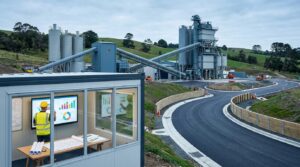Did you know 74% of companies find themselves limited by rigid reporting templates when scaling their sustainability programs? Greenly offers quick carbon accounting deployments – but growing organizations soon hit friction: inflexible reporting, minimal automation for Scope 3, and weak regulatory compliance support. Sustainability leaders need platforms that streamline complex carbon data, integrate seamlessly into supply chains, and automate ESG reporting. This article highlights five proven Greenly alternatives that offer comprehensive carbon management – helping your team simplify emissions tracking, meet complex compliance frameworks, and scale your sustainability initiatives effectively.
What is Greenly? A Quick Overview
Greenly is a carbon accounting platform designed to help businesses measure, manage, and report their greenhouse gas emissions. It provides straightforward deployment and user-friendly tools, allowing sustainability teams to quickly understand their carbon footprint. The software is particularly popular among smaller organizations and startups due to its intuitive dashboards and ease of use. Common criticisms include limited customization options, inflexible reporting templates, and difficulties integrating complex supply chain data. Companies with advanced compliance needs, such as adherence to frameworks like CSRD or ISO 14040, often encounter challenges when scaling their sustainability management efforts with Greenly.
Why Businesses Are Searching for Greenly Alternatives
As sustainability reporting becomes crucial for regulatory compliance and stakeholder transparency, businesses are increasingly finding Greenly’s functionality too rigid for their evolving needs. Sustainability officers and supply chain managers often encounter several core limitations with Greenly that drive them toward more flexible, integrated solutions.
Key pain points include:
-
Inflexible reporting templates: Greenly’s rigid reporting structures restrict customization, making it difficult to align reporting outputs with diverse frameworks such as CSRD or ISO 14040. Companies require adaptable templates that reflect their industry's specific ESG reporting standards and stakeholder expectations.
-
Lack of real-time supply chain integration: Effective carbon management depends on timely and accurate supply chain data. Greenly’s inability to integrate real-time operational data significantly hampers efforts to achieve full Scope 3 emissions transparency, limiting proactive sustainability management.
-
Insufficient automation for Scope 3 emissions: Automating Scope 3 emissions calculations is critical for large enterprises and complex supply chains. Greenly’s limited automation features often result in manual, error-prone processes, increasing time spent on data collection and verification.
-
Weak compliance support: Businesses preparing for stringent sustainability regulations such as the EU’s CSRD or ISO 14040 standards need robust compliance tracking capabilities. Greenly’s limited compliance frameworks leave companies vulnerable to compliance risks and reporting inefficiencies.
Key Features to Evaluate in Greenly Alternatives
When evaluating alternatives to Greenly, sustainability teams should prioritize features that align closely with their evolving carbon management goals. Effective platforms deliver automation across Scope 1, 2, and especially Scope 3 emissions tracking – streamlining data collection, reducing errors, and minimizing manual workloads. Real-time supply chain data integration is equally critical, enabling accurate, up-to-date insights into emissions across your entire value chain and empowering proactive decision-making.
Comprehensive ESG reporting solutions also provide customizable outputs tailored to various geographic regions, brands, and regulatory frameworks. This flexibility ensures your reports meet specific stakeholder expectations and evolving sustainability standards. Built-in automation for key compliance requirements, such as CSRD and ISO standards, further simplifies regulatory adherence, reducing risks and maintaining audit readiness.
Finally, user-friendly UX is essential for quick onboarding and cross-functional team collaboration. A carbon footprint platform comparison should highlight ease of use, intuitive dashboards, and accessible analytics – allowing sustainability officers, supply chain managers, and business leaders to rapidly gain insights and act on sustainability initiatives.
Key features to prioritize include:
- Automated Scope 1–3 emissions tracking
- Real-time integration with supply chain data
- Customizable ESG reporting outputs
- Built-in compliance automation (CSRD, ISO standards)
- Intuitive user experience for efficient team onboarding
5 Proven Alternatives to Greenly (With Use-Case Fit)
When Greenly's limitations in customization and advanced supply chain integration become apparent, sustainability leaders often consider more robust carbon management platforms. Here are five proven alternatives, each suited to specific organizational needs and ESG priorities.
Ecochain
Ecochain is particularly suited for companies managing complex supply chains or manufacturing operations. Its platform integrates real-time data synchronization, enabling accurate Scope 1–3 emissions tracking across extensive value chains. Automated compliance features streamline reporting for frameworks including CSRD and ISO 14040, significantly reducing manual input errors. Intuitive dashboards ensure quick onboarding and efficient cross-team collaboration, making Ecochain highly effective for businesses focusing on operational sustainability.
Sweep
Ideal for organizations emphasizing internal collaboration and emissions reduction roadmaps, Sweep's platform simplifies carbon management through clear, actionable insights. Teams can set science-aligned reduction targets, assess the impact of sustainability initiatives, and monitor progress collaboratively. Its strength lies in facilitating coordinated sustainability efforts across departments, making it particularly valuable for enterprises prioritizing collaborative ESG goal-setting and execution.
Persefoni
Persefoni excels in supporting corporate ESG teams requiring detailed auditability and enterprise-level compliance. Its robust tracking and reporting capabilities cover comprehensive Scope 1, 2, and 3 emissions inventories, ensuring data accuracy and audit readiness. Persefoni offers advanced analytics tools, enabling precise scenario modeling for emissions reduction strategies. This makes it a compelling option for large enterprises with stringent internal governance and external regulatory reporting demands.
One Click LCA
Specifically designed for the construction sector, One Click LCA provides streamlined life cycle assessment (LCA) capabilities tailored for built-environment professionals. The platform simplifies Environmental Product Declarations (EPDs), supporting accurate carbon footprint calculations for building materials, construction projects, and related supply-chain activities. Its intuitive interface and sector-specific databases make it an optimal choice for architects, engineers, and construction firms striving for sustainability compliance and efficient LCA processes.
SimaPro
Favored by researchers and seasoned LCA experts, SimaPro offers deep modeling capabilities for complex product systems and detailed environmental impact analysis. While its comprehensive data sets and scientific transparency are significant strengths, the platform requires a steeper learning curve compared to other tools. Organizations with specialized sustainability teams or academic institutions conducting detailed LCAs and research-oriented environmental impact assessments will find SimaPro particularly beneficial.
| Platform | Best Use-Case Fit | Key Strengths |
|---|---|---|
| Ecochain | Complex supply chains, manufacturing | Real-time integration, automated compliance |
| Sweep | Collaborative sustainability roadmaps | Internal collaboration, actionable insights |
| Persefoni | Enterprise ESG reporting and audits | Auditability, scenario modeling |
| One Click LCA | Construction sector LCAs and EPDs | Sector-specific databases, streamlined EPDs |
| SimaPro | Research-focused LCAs | Advanced modeling, scientific transparency |
Final Words
Switching from Greenly isn't just about overcoming rigid templates or limited Scope 3 automation – it's about scaling sustainability operations effectively.
The best Greenly alternatives offer users robust compliance functionality, seamless supply chain data integration, and intuitive user experiences that empower cross-functional collaboration.
Evaluating these key features will help align your sustainability platform choice with long-term business goals.
Embracing the right carbon accounting solution positions companies not just to meet compliance standards – but to confidently lead in sustainability.
FAQ
Q: What is Greenly carbon accounting software?
A: Greenly is a carbon accounting software platform businesses use to calculate and report greenhouse gas emissions. It's known for quick deployment and simplicity, but can lack customization, scalability, and advanced compliance options.
Q: Why do businesses search for alternatives to Greenly?
A: Businesses seek Greenly alternatives due to inflexible reporting templates, limited real-time supply chain integration, inadequate automation for Scope 3 emissions, and weak support for compliance frameworks like CSRD and ISO 14040.
Q: What key features should be evaluated in Greenly alternatives?
A: Key features when evaluating Greenly alternatives include automated Scope 1–3 emissions tracking, real-time integration with supply chain data, customizable ESG reporting, compliance automation with standards like CSRD and ISO, and intuitive onboarding experiences.
Q: What are the best alternative tools to replace Greenly for carbon footprint management?
A: The best Greenly alternatives include Ecochain for complex supply chains and manufacturing, Sweep for internal collaboration on emissions reduction, Persefoni for enterprise-level auditability, One Click LCA for construction-focused lifecycle assessments, and SimaPro for deep LCA modeling.
Q: Which Greenly alternative is best for supply chain and manufacturing sustainability teams?
A: Ecochain is the preferred Greenly alternative for sustainability teams in supply chains or manufacturing, offering real-time data synchronization, automated compliance reporting, and intuitive dashboards suited for complex scenarios.




